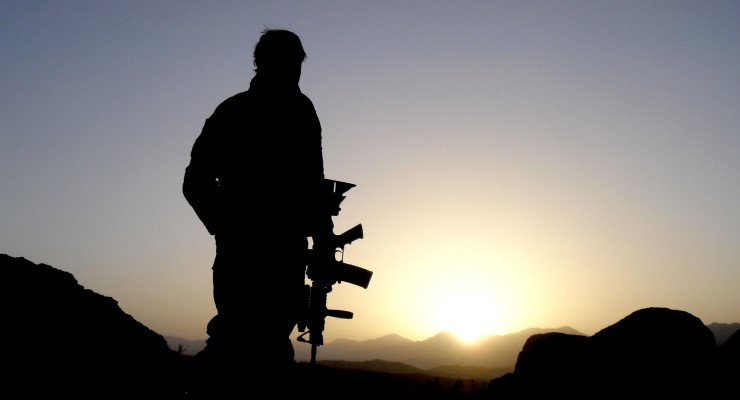
Elite Australian soldiers killed 39 people in Afghanistan, the Brereton report found. While the findings astonished many Australians, they were no surprise to members of the Australian Afghan community, who say civilians have been treated poorly for decades.
While the report is a good place to start, Afghan-Australians say that much more needs to be done to reconcile with our war crimes, ranging from accountability to compensation, to better support for those affected by the ongoing war.
Humanitarian response is the way to make amends
Dr Nouria Salehi is a retired nuclear physicist and biophysicist who studied in Kabul before immigrating to Australia. She now leads the Afghan Australian Development Organisation charity and, pre-COVID-19, travelled to Afghanistan several times a year.
Salehi told Crikey the Australian government could make amends with the people of Afghanistan through humanitarian efforts.
“I thank the government for publishing the Brereton report,” she said.
“But they shouldn’t stop there. They should help these families, and Australia has a responsibility to help the Afghan community in Afghanistan with their education, and the education of their children.”
Since 2014, Australia’s estimated 2019-20 overseas development aid to Afghanistan will have been cut by 41%.
Australia’s reputation in Afghanistan has been damaged, Salehi said. She said it was crucial that the government used the best channels, such as community groups and charity organisations, to deliver funding where it was most needed.
“If [the Australian government] says, we made a mistake and now we’re trying to help you in your education … people who have lost their fathers, brothers and husbands will be happy.”
She warned against simply providing cash to families, saying there was a risk it ended up in the pockets of politicians.
Justice and accountability are key
Law student Sitarah Mohammadi, who has completed a dissertation on Australia’s refugee policy as a provost’s scholar at the University of Oxford, told Crikey justice was crucial in the healing process.
“People are quite distressed and outraged by the findings, but not shocked. The country has been at war for 40 years, and there have been many phases of innocent civilians dying at the hands of the government and the Taliban,” she said.
“The despair comes from the fact the crimes were committed by international forces — particularly Australia who were there to protect innocent civilians.”
The Brereton report has recommended compensating victim’s families — but Mohammadi said this alone wasn’t enough.
“Compensation will never really heal or provide justice for the families. The people who committed these need to be put through a due process and put through a trial. They should be subjected to the criminal system in Australia,” she said.
“If we don’t, then what’s the point of the rule of law?”
Mohammadi also recommended the government offer the victim’s families asylum in Australia. While it remains to be seen whether families would accept such an offer from the nation accused of killing their loved ones, Mohammadi said having the option was important.
“It’s up to them whether they do or don’t accept. That option would show them that we are doing things on our end as a country to make amends.”
Reconciliation and refugee intake
Writer, editor and artist of the Afghan diaspora Bobuq Sayed has written two opinion pieces in Meanjin on Australia’s alleged war crimes.
Their first piece, which questioned the media and the government’s focus on the current soldier’s mental health and the framing around “a few bad apples”, led to social media threats and accusations of them being “unAustralian”.
“There’s a sense that in the media and in the public generally that these crimes are still being framed as necessary casualties or unavoidable consequences,” they told Crikey.
“It’s a way a defensive country and media system has managed to frame cruel war crimes as unfortunate developments.”
Sayed said reconciliation was possible, and would present an opportunity for Australia to repair its relationship with Afghanistan.
According to Sayed, the Australian government should look at reconciliation efforts in Germany, and could start by acknowledging the harm with memorials, scholarships, government-funded departments to preserve Afghan language, culture and heritage. Refugee caps for Afghan refugees should also be increased.
“We need more than an apology, we need demonstrable actions that look to better the condition of Afghans in Australia and abroad, especially those seeking asylum,” Sayed said.








Crikey is committed to hosting lively discussions. Help us keep the conversation useful, interesting and welcoming. We aim to publish comments quickly in the interest of promoting robust conversation, but we’re a small team and we deploy filters to protect against legal risk. Occasionally your comment may be held up while we review, but we’re working as fast as we can to keep the conversation rolling.
The Crikey comment section is members-only content. Please subscribe to leave a comment.
The Crikey comment section is members-only content. Please login to leave a comment.